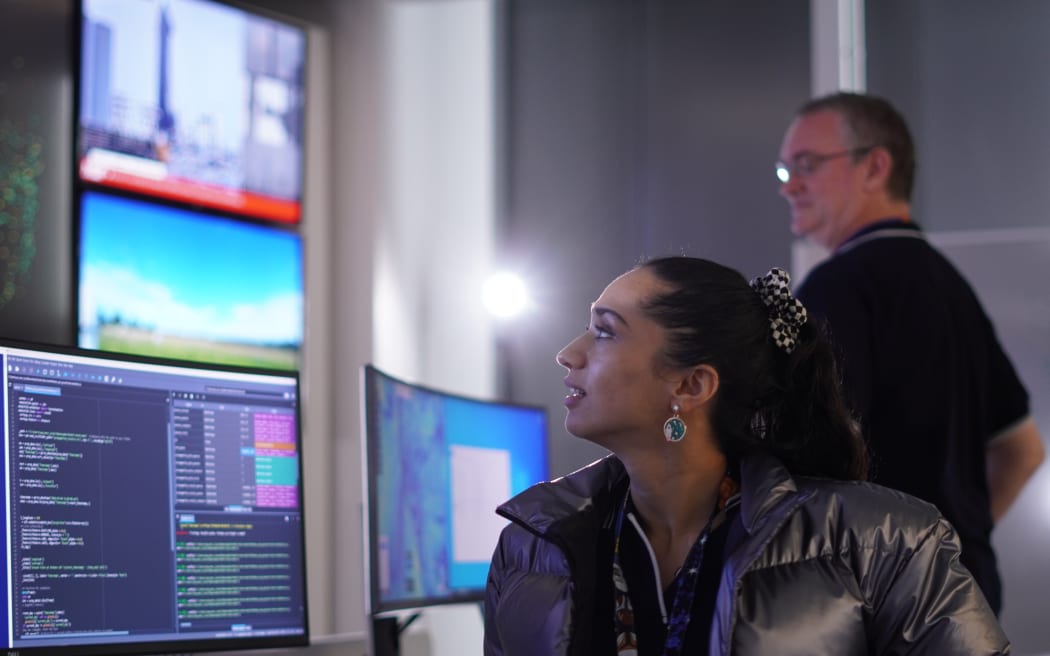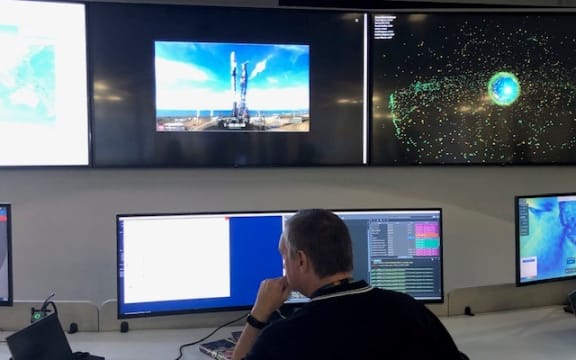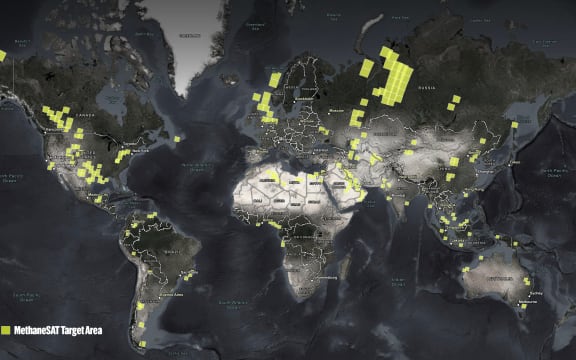The Detail visits a mission control centre in the basement of Auckland University, that within a year will be operating a methane-detecting satellite.

Ops engineers Mahima Seth and Vernon Lewis at the University of Auckland's mission control centre. Photo: University of Auckland
There's been another SpaceX rocket launch in California, but this one was watched keenly at not one, but two mission control centres in Auckland.
This week's Falcon 9 lift-off contained a payload designed to show, for the world to see, who the world's worst methane polluters are.
It's a project by the non-profit American NGO the Environmental Defence Fund, which has tapped the New Zealand government for a nearly $30 million contribution towards the cost of sending up MethaneSAT.
That's in spite of the fact that the satellite is aiming at oil and gas pipelines - the chances of it being able to trace agricultural methane emissions on a relatively small scale such as in our country are debatable.
However, there is a payoff for Aotearoa's fledgling space industry.

Senior operations engineer Vernon Lewis at the University of Auckland's MethaneSAT mission control Photo: Alexia Russell/The Detail
Shortly after launch control of MethaneSAT was handed over to RocketLab's Mt Wellington crew; and within a year it will be operated by Auckland University's new mission operations centre.
Auckland is the first university in New Zealand to operate a satellite.
Its space centre was paid for by the Ministry for Business, Innovation and Employment under its Strategic Science Investment Fund to the tune of $3.35m so far. There will be further contracts covering work over the next four or five years to do with the MethaneSAT programme.
It means New Zealand students looking to the stars will get real-life, hands-on experience. Many of them will likely end up on the staff at RocketLab, a home-grown but now US-owned operation that has enabled budding astronomers to stay home instead of having to go overseas for work.
The Detail was at the university's mission control centre as the live feed of this rocket launch came through, and spoke to the senior and junior operations engineers, Vernon Lewis and Mahima Seth respectively, for the MethaneSAT programme.
"We'll be using [the students] for analysing the telemetry data, and helping to produce the state of health reports," says Lewis. "They'll probably be involved also in the upload and download of telemetry and command data, and we'll actually get them hands-on driving the satellite, under supervision."
The satellite is effectively a spectrometer that measures the visible light waves from methane emissions and can pinpoint with incredible precision where they're coming from.

MethaneSAT will target areas all over the globe to analyse, but will concentrate on oil and gas pipelines. Photo: MethaneSAT
The orbit is fixed and targets are selected by another part of the MethaneSAT organisation.
"You should be able to target within a few kilometres," says Lewis. "That's enough information to point out to someone 'your oil well's leaking'."
Whether it will pick up farm emissions "remains to be seen", he says. "We'll find out when it's in orbit and in operation... we shall see how sensitive it is."
Lewis says one of the best things about this operation is teaching the next generation how to do it.
"You give them the skills to go out and contribute worldwide and hopefully build the kiwi space industry. Feed them into places like NASA."
The programme also feeds to RocketLab, "the obvious local destination," although Lewis says the industry here is growing and if young people want to stay in the country, there is increasing opportunity to do so, though most is at start-up stage at the moment.
Operator Mahima Seth says a lot of people who work in the space industry start off wanting to be an astronaut, and "I will not deny that I'm also one of them".
But she says your whole world can't revolve around becoming an astronaut so she's on the ground looking up instead, and will be responsible for making sure the satellite is working properly, meaning it's performing as it's meant to, is where it needs to be and is happily sending data home.
"For a long time, I thought my options were pretty limited as far as doing things space-related, so I think I'm quite lucky to be here," she says.
Check out how to listen to and follow The Detail here.
You can also stay up-to-date by liking us on Facebook or following us on Twitter.


